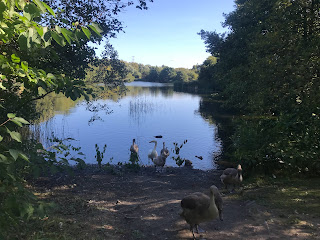Lindisfarne
I
If I have looked at your stooped back
And your tense muscles (naming them thews)
The sunlight blond on your hair
And the green sprouting of your virile crops
Praising them, forgetting the runnels of sweat
Stinking in your armpits, the honed wind
Nailing your skin, the worms of decay
Coursing up through your limbs, loneliness
The hawk hovering over your shoulder
Preparing to stoop, prying, forgive me
I am a man; and remember yourself
That crabbed fingers and rounded shoulders,
Fumes in the lungs, halter on the heart,
Attend your dream. At least my
Dream is noble. Your life is harshness
And your dream luxuriant decay.
II
When I consider the poets I have loved
This I discover is their common element:
Soil. Whether Mackay Brown's patchwork,
Drudgings among stones, furrows pages
To be tuned through station of the year to harvest;
Thomas, amid his peasant parishioners battling
Doggedly against the tilth that bore them,
Longs to absorb them; Heaney's diggings,
Peat embruing to constitute bog people;
Rowe's more exotic peasants stolid
As the tractor mangles their world; or the one
Poem I know of Ogston's celebrating
The crofter's sordid defeat, soil
Is their material. I have enjoyed reading also
Part understood volumes on geomorphology:
Glacier or flood sculpting clay or rock.
Yet there are romantic touches to my
Love of their works for the soil itself
I handle only in a little loved garden:
Not that the peasant loved his land,
A harsh mistress rooting age into his limbs.
Soil, tilth, peat or clay:
This is the word I have shunned: Earth.
III
The vital water, silting and moistening,
Compounds the good ground.
The fecund seed, broadcast on the earth
Clung in the good ground.
The thievish birds jibbed at the nets
Shielding the good ground.
Roots writhed down, toward the procreant water
Imbuing the good ground.
Toward the sun sprouts pullulate
Out from the good ground.
Master, garner the mellow fruit
From your good ground.




















